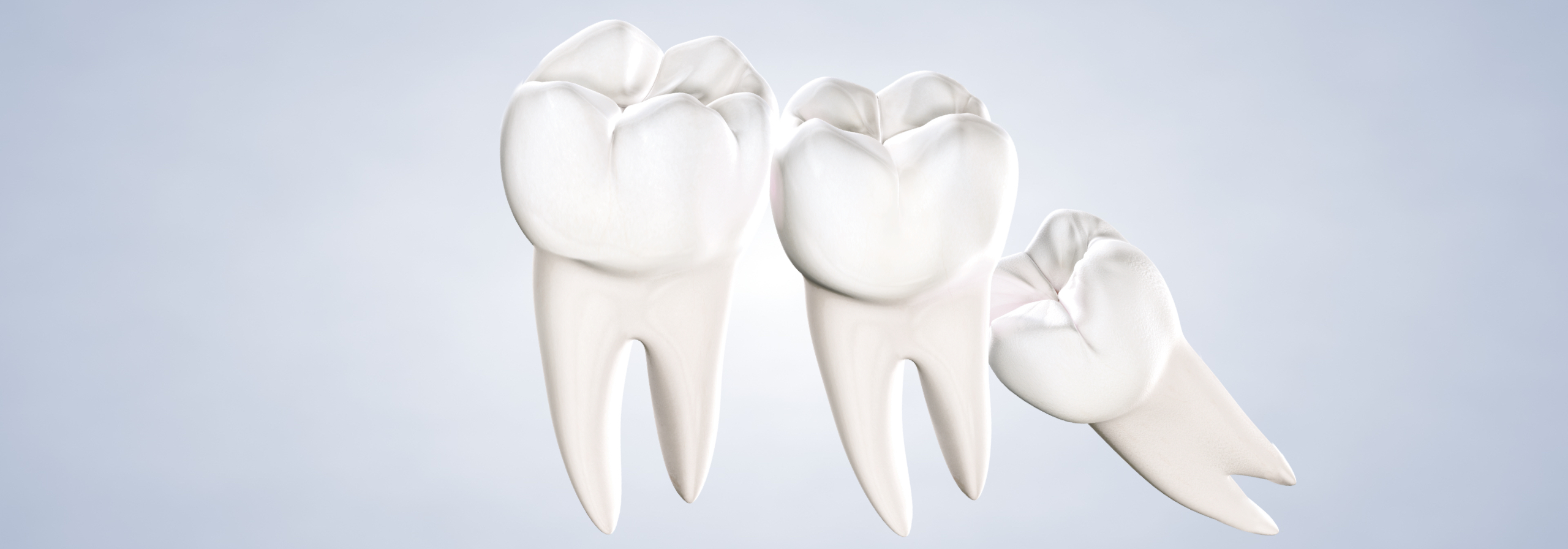
Wisdom teeth removal can be successfully performed on patients of all age ranges, from individuals in their early to mid-teens to older adults in their late 50s–60s. There is not a specific age that wisdom teeth must be removed. However, dentists recommend removing wisdom teeth as soon as possible. When third molars are removed promptly, patients experience optimal results, easier surgeries, and smoother recoveries.
During the late teens or early twenties, the wisdom teeth have not yet fully developed. The younger the patient is at the time of the extraction, the less likely it is that the teeth have fully formed underneath the gum tissue making them easier to remove.
As you age, the roots of wisdom teeth will become more deeply embedded into the jaw bone. This can lead to more complicated surgery to have these teeth extracted. Younger patients also tend to have faster recoveries than older patients.
Even if you are not in pain or do not suspect the presence of wisdom teeth, you should see a dentist every 6 months to treat them as soon as they appear. If you experience any of these signs or symptoms, it may be time to have your wisdom teeth taken out:
- Swelling of the gums
- Pain or pressure behind the second molars
- Jaw pain
- Gums that easily bleed
- Difficulty fully opening the mouth
- Bad breath
- A bad taste in your mouth
- Seeing the top of a wisdom tooth poking through the gums
Wisdom teeth can cause damage to your teeth, tissues, and overall oral health without causing pain or being noticed. If any of the above symptoms sound familiar, contact a dentist professional for an evaluation.
What Are Wisdom Teeth?
Wisdom teeth, also called third molars, are the last teeth to develop. Some people develop all four wisdom teeth, more or less than four, or none at all. When you attend checkups with your dentist, he or she will take X-rays to evaluate your teeth. If wisdom teeth are developed, your dentist will refer you to an oral and maxillofacial surgeon.
The average adult mouth can only hold 28 teeth. It can be problematic when an additional set of molars tries to squeeze in. A wisdom tooth can erupt into the dental arch or become trapped beneath the gums, known as impaction. Impacted wisdom teeth must be surgically removed by an oral surgeon because these molars will not grow properly through the gums.
Why You Should Have Wisdom Teeth Extracted
Regardless if the wisdom teeth have erupted or are impacted, dentists and oral surgeons recommend having them removed as soon as possible. These teeth are large and have unpredictable roots, which can grow into other teeth roots or facial nerves. Wisdom teeth grow at an angle, which can push into nearby teeth and cause them damage.
When wisdom teeth partially emerge, they become a trap for food and bacteria. This leaves you more susceptible for infections. An infected wisdom tooth is more prone to the development of cysts and tumors around the tooth, and if left untreated, can lead to tooth decay or gum disease. Wisdom tooth removal prevents these issues from occurring.
By not having wisdom teeth removed, you become susceptible to many other oral health issues, such as:
- Chronic bad breath due to infection
- Dental shifting
- Dental overcrowding
- Pain
- Swelling
- Gum tenderness
- Bone and tissue damage
When it’s time to have your or your child’s wisdom teeth removed, explore your options carefully. Research oral surgeons near you and choose an expert you can trust. Wisdom Teeth Only by Specialists is your resource for finding the right oral surgeon to perform comfortable, efficient, and affordable wisdom teeth removal.